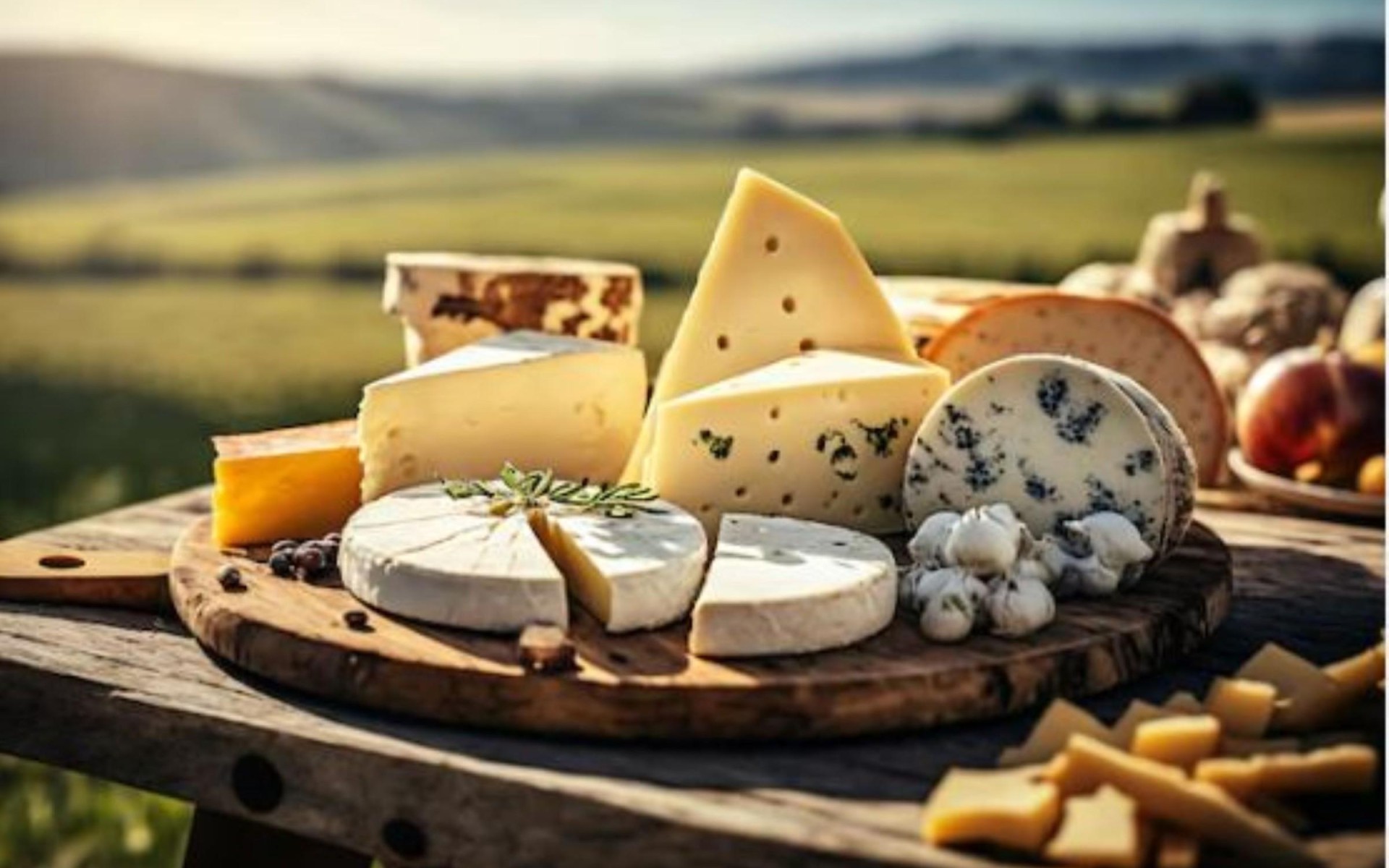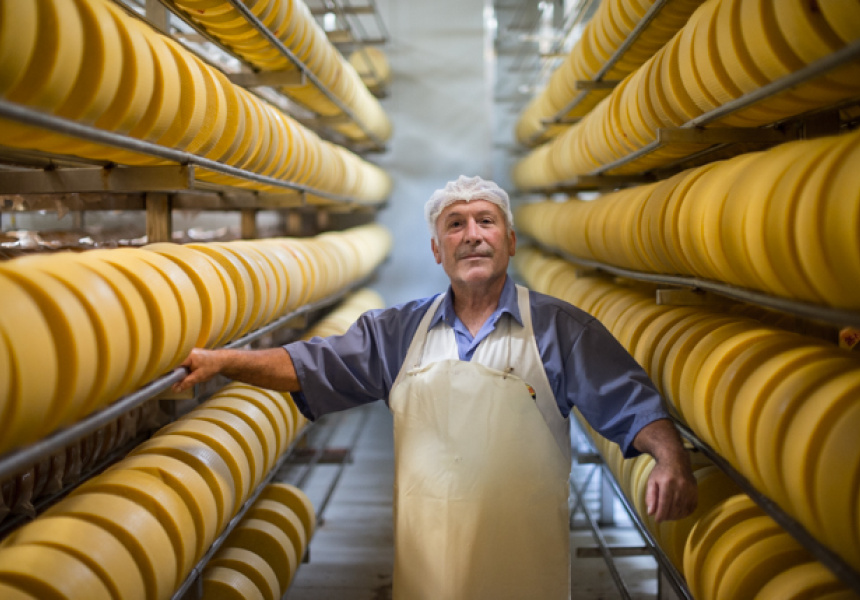Cheese Factory Melbourne: Experience the Art of Cheese
Cheese Factory Melbourne: Experience the Art of Cheese
Blog Article
A Thorough Check Out Cheese Production: Ingredients, Techniques, and the Future of Artisan Cheeses
The detailed procedure of cheese manufacturing is an interesting merging of art and scientific research, where premium milk, rennet, and specific bacterial cultures offer as foundational aspects. As the industry significantly focuses on sustainability and openness, the future of artisan cheeses promises to mirror both heritage and development.
Key Components in Cheese Manufacturing
A variety of vital components play a crucial duty in cheese manufacturing, each adding to the end product's flavor, texture, and personality. The main ingredient in cheese is milk, which can originate from different resources, consisting of cows, goats, and sheep - cheese makers melbourne. The sort of milk utilized considerably affects celebrity's taste and uniformity; as an example, cow's milk normally produces creamier cheeses, while goat's milk frequently produces tangy ranges
Another vital component is rennet, an enzyme utilized to curdle the milk, separating it right into curds and whey. The source of rennet can be animal, veggie, or microbial, each giving distinct qualities to celebrity. Societies, being composed of certain stress of microorganisms, are likewise essential to the cheese-making process. They ferment lactose right into lactic acid, assisting in flavor development and appearance.
Salt not just improves the taste but likewise acts as a chemical, inhibiting the growth of undesirable microorganisms. Additionally, different flavor agents, such as natural herbs, seasonings, or perhaps smoked timber, can be included in create distinct artisanal cheeses. Together, these ingredients develop the foundation of cheese manufacturing, establishing the stage for diverse and rich cheese varieties.
Traditional Cheese-Making Techniques
Utilizing typical cheese-making strategies, craftsmens around the globe preserve classic techniques that have actually been passed down through generations. These methods often emphasize the usage of top notch, in your area sourced milk, which is central to the distinct flavors and structures of artisanal cheeses. The process commonly starts with the cautious home heating of milk, followed by the enhancement of societies and rennet to help with coagulation.
When the curds form, they are cut, allowing whey to drain pipes, a vital step that affects moisture material and appearance. Salting is an important element of this process, boosting taste while additionally acting as a preservative.
Aging, or affinage, is one more critical component, during which cheeses create their particular aromas and preferences. Craftsmens may use particular maturing settings, making use of humidity and temperature controls to refine the cheese's account. The dedication to these typical techniques not just supports regional economic climates however additionally contributes to the abundant variety of cheese ranges located globally, commemorating social heritage and artisanal workmanship.
Modern Developments in Cheese Production
How have technical innovations changed cheese production in the last few years? The integration of modern-day technology has revolutionized both the effectiveness and high quality of cheese manufacturing. Automation in different stages of the process-- from curd development to packaging-- has actually boosted consistency while lowering labor expenses. For example, automated curd reducing and stirring systems enable exact control over appearance and dampness degrees, important aspects affecting the last item.
Additionally, improvements in microbiology have actually enabled cheesemakers to pick details bacterial societies and enzymes, enhancing flavor profiles and boosting life span. Using sensing unit technology for keeping track of fermentation problems has additionally come to be prevalent, enabling real-time modifications to preserve optimum environments for cheese aging.

These advancements not only improve the high quality and sustainability of cheese manufacturing but additionally equip craftsmen manufacturers to keep standard tastes while embracing modern-day effectiveness. As innovation proceeds to develop, the future of cheese manufacturing looks promising, blending tradition with technology.
The Function of Terroir in Cheese
In the world of cheese manufacturing, terroir plays a pivotal duty in specifying the distinct characteristics of numerous cheeses. Terroir, a French term cheese factory melbourne commonly connected with wine, includes the environmental variables that affect agricultural products, including soil composition, environment, and neighborhood vegetation and animals. In cheese-making, the special characteristics of the area where the milk is sourced can impart particular tastes and structures to the end product.
As an example, the grazing problems of milk pets dramatically impact the milk's structure, influenced by the sorts of grasses and natural herbs readily available in a specific locale. This differs not only between nations yet likewise in between regions within the exact same country. In addition, the microbial areas present in the setting add to the fermentation procedures, resulting in varied accounts in taste and scent.
Cheeses such as Roquefort, Parmigiano-Reggiano, and Cheddar exhibit just how terroir can shape their identities, making them distinct and typically safeguarded by geographical indications. As producers increasingly acknowledge the importance of terroir, there is a growing emphasis on sourcing regional active ingredients and maintaining traditional methods, guaranteeing that each cheese really reflects its beginning.

Future Fads in Craftsmen Cheeses
A remarkable change is taking place in the craftsmen cheese field, driven by progressing consumer choices and technical innovations. Increasingly, consumers are inclining special, high-grade items that stress both sustainability and regional sourcing - cheese factory melbourne. This trend is prompting artisan cheesemakers to innovate, concentrating on small-batch production and making use of conventional techniques while integrating contemporary innovation to enhance top quality and safety and security
In addition, there is an expanding interest in plant-based and alternative milk items, pushing typical cheesemakers to check out brand-new methods, such as cashew or almond-based cheeses. This change not only satisfies nutritional limitations yet also straightens with environmental worries relating to pet agriculture.
In addition, openness in sourcing and manufacturing processes is ending up being vital. Consumers are much more educated and need traceability, prompting producers to adopt more clear labeling methods and involve in narration that highlights their methods and worths.
Verdict
To conclude, the detailed procedure of cheese production fuses conventional techniques with modern advancements, leading to a diverse array of tastes and structures. The emphasis on top quality ingredients and the influence of terroir emphasize the virtuosity involved in cheese production. As the sector develops, a focus on sustainability and openness will likely shape the future of artisan cheeses, accommodating a progressively critical customer base that values credibility and craftsmanship in milk items.
Report this page